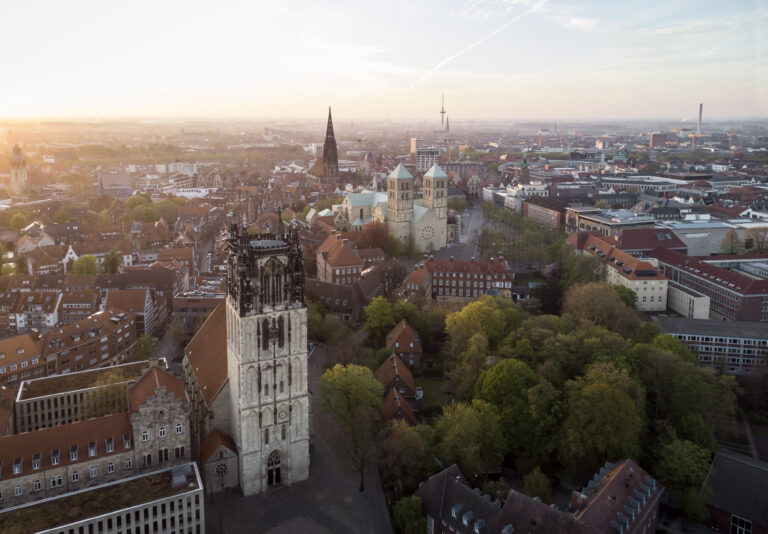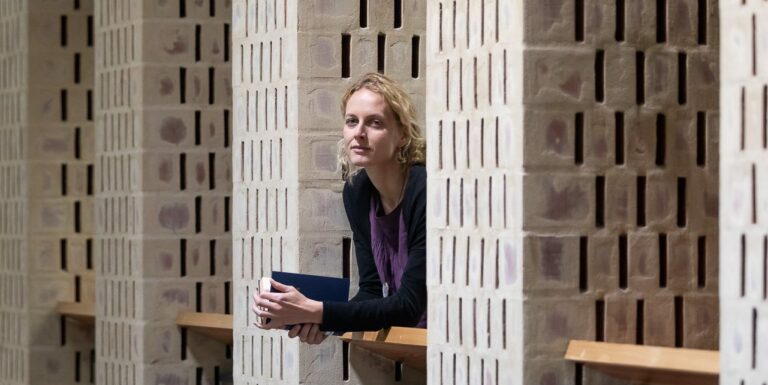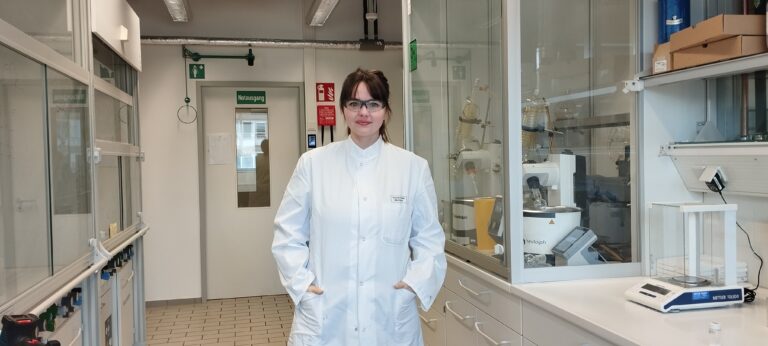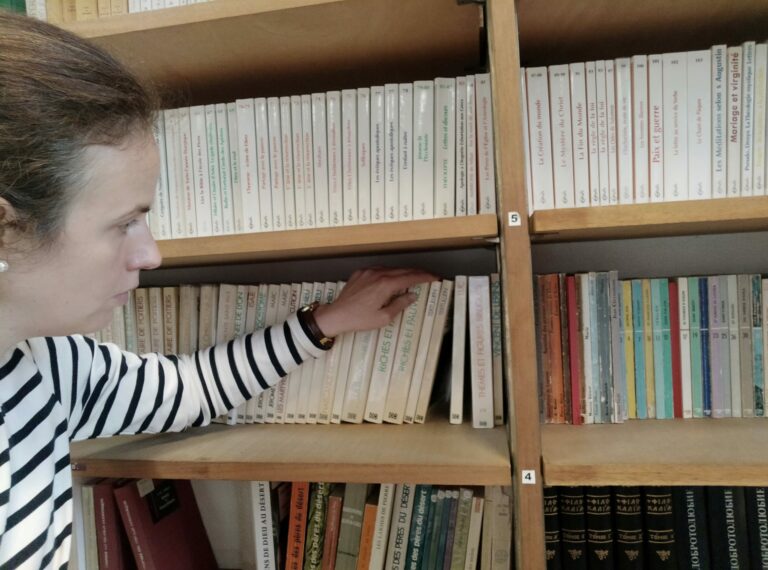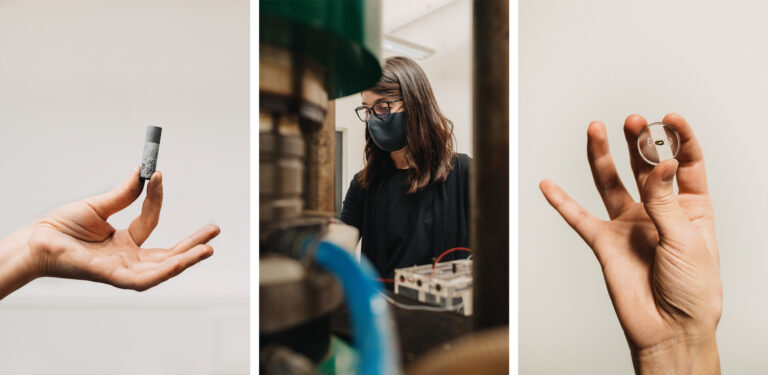
Can Taxes Fight Climate Change? Tax Lawyer Dr. Tatiana Falcão Knows the Answer!
In the series “33 questions” we introduce, in no particular order, our WiRe Fellows who are currently working on a research project here at the University of Münster. Why 33? Well, if we think of the rush hour of life, it is kind of the age that lies in its middle. And we also like the number😉.
In today’s episode we are speaking with Dr. Tatiana Falcão, an international tax lawyer and avid supporter of carbon tax regimes.

1. What motivated you to work in the field of International tax?
Although I come from a family of lawyers, I went into law school by chance. I wanted to become an artist. In fact, during my first two years of law school, I attended a different university to study architecture, and studied fine arts three times a week in a local art school in Rio de Janeiro. I started law school because my father, who is also a lawyer and thought of me as being very studious, conditioned studying law to undertaking the art courses I wanted to take. Over time, I gained a liking to law and started working in a law firm after the university I studied architecture in went on strike. Perhaps it was written in the stars? I have always liked being very busy, and with the strike came an urge to do something else, so I undertook my first internship in a law firm specialized in civil law, for only about 8 months. I soon joined a new law firm where they knew of my family history and placed me in the tax law department.
2. Describe your daily work in three words.
Study, read, write.
3. A good tax lawyer needs …?
Personal motivation, commitment, to like studying and to be able to connect the dots to put them into writing in a way that others can easily understand. A good lawyer needs to be a good storyteller. You have to like telling a story in a way that is interesting to others (your client or the judge), and in a synthesized manner in order to capture your reader’s attention.
I think one needs to be passionate about what one does. Have you ever noticed that it is pleasurable to listen to other people talk about something that they are passionate about, even if the topic is not of particular interest to you? Passionate people are contagious, and they are able to convey their passion more effectively to others.

4. What is the best experience you have had as a scientist / researcher?
I have had two excellent experiences. One of them was finalizing my book, which also happened to be my PhD dissertation, and seeing it published. The second one was landing a writing contract to produce monthly columns focused on emerging economy issues in a major international tax law journal. These two events have been really rewarding as a researcher. In general, I really enjoy it when I get feedback about a paper or column, when I get invited to an interview as a result of a publication, or when I get cited. It shows that others have obtained inspiration from my ideas and are further developing them. That is really rewarding indeed.
5. Which (historical) important scientist would you like to have dinner with?
I would like to have been able to have dinner with my grandfather. His name is Amilcar Falcão and he is one of the fathers of Brazilian tax law, known to have written a book that is, to this day, taken to be a reference book in law schools, on the triggering event to the levying of taxes. Unfortunately, he passed when my father was just a youngster and I did not get to meet him. However, being on the same field as he is, I often get told how he was as a person. We do the same thing, but we live in different times. It’s kind of a crazy thought, but I like to think about how he would have reacted to all the modern theories we are putting forward in tax law.
6. What would you ask?
How was it to be so successful and recognized by your peers at such a young age? (when he died he was only 35).
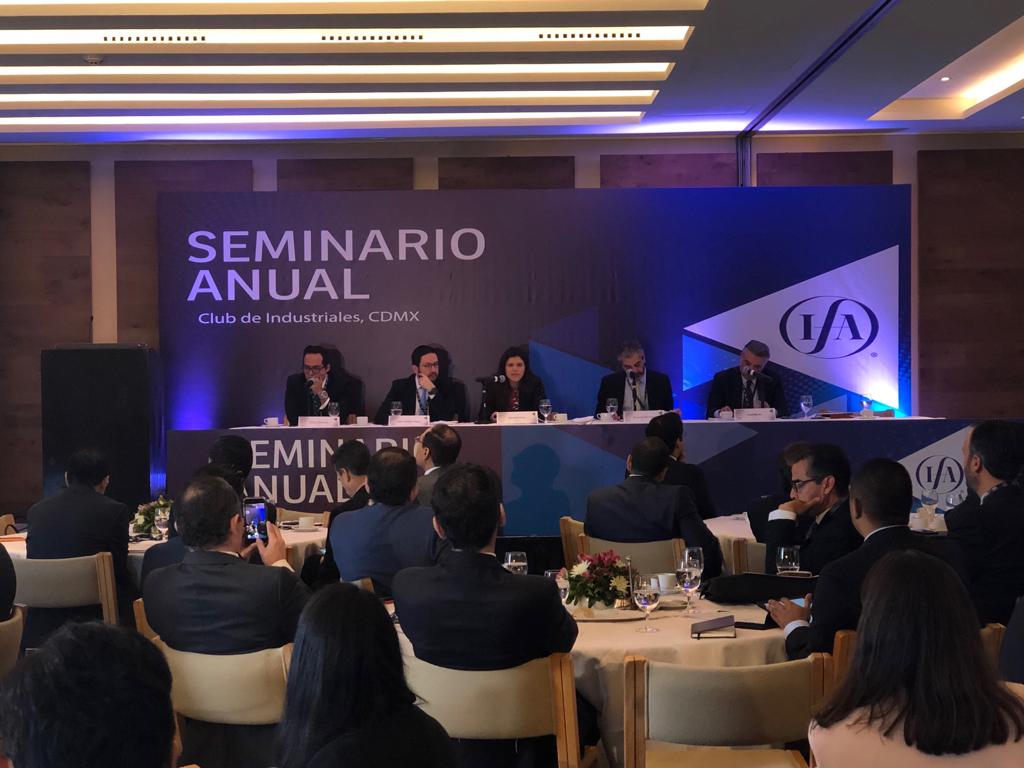
7. If time and money were no object: Which research project would you like to do?
I would like to dedicate myself exclusively to the development of a multilateral scheme that is apt to price carbon wholesomely. Right now, the countries that do employ carbon taxes, seldom employ all-encompassing taxes (reaching all areas of the economy) due to competitiveness concerns, or because there is no uniform regime to tax carbon that is released in international shipping, for example, or the carbon that is released during air transport. I would like to be able to promote extensive research on the topic and teach countries how to employ best practices nationally, and in coordination with each other, so that (1) every country has an opportunity to raise the revenues corresponding to the activities occurring domestically; and (2) the environmental cost of doing business is finally built into the price of products that are commercialized nationally and internationally.
8. What is your favourite research discipline other than your own?
Female artists’ influence on contemporary painters. I am particularly intrigued with the work of Latin American female artists, such as Frida Kahlo, Tarsilla do Amaral, Beatriz Milhazes, and Lygia Pape. I find it incredible that these women were able to excel themselves and obtain international recognition while working in a region that is taken by the culture of patriarchism. That they were able to work in art, in the first place, is an amazing feat. Their works of art resonate through generations and reflect some of the struggles they went through.
9. What do you consider the greatest achievement in the history of science / your field?
Klaus Vogel’s Comprehensive work on Tax Treaties – a highly respected German tax law professor whose work is still cited by courts, scholars and policy makers many decades after his death.
10. Which experience in the world of science disappointed you most?
I am always a little frustrated with the male dominance in the world of international tax, and with the fact that women do not help each other enough. It is not uncommon to see male professionals inviting their peers and friends to do a lecture, organize a seminar, promote their work, but the same does not happen amongst female professionals – perhaps because there are not enough of us in leadership positions. I have it as a professional goal to help young women starting a career in tax.
11. What was the funniest moment you had in science?
I do not carry on lab research, so I am afraid my moments in research are rather mundane – I do not have a particular funny moment to report.
12. How did you survive your PhD time?
I gave myself small daily, weekly and monthly goals. To finalize one chapter, to write X number of pages, finalize a research, etc. I also took breaks from writing the dissertation and focused on writing other papers unrelated to the topic I was working on in my Ph.D, in order not to get tired of the topic.
I tried as much as possible not to give up social commitments because of the PhD because I read somewhere that it can lead to PhD fatigue. Social interaction is important, so is having fun!
Also, I always wrote everything I thought of on paper. That is a strategy I still employ to this day in writing articles. If I think of something, I jolt it quickly down on paper even if the language is not right, or if the thought is not finalized. That way I can always develop it further over time, mature the idea, or perhaps even drop it altogether. It is just useful to have it written somewhere so the thought is not lost.
13. What direct or indirect relevance does your research have for society?
The reason why I enjoy doing research in tax and writing about it, is because of its direct impact in society and in the benefits that a well employed well tax policy has in fostering development in developing nations, capacitating governments to provide better services, or just influencing behaviour.
My research in international environmental tax policy is of direct relevance to society, because of the way a carbon tax works in practice. Environmental taxation has, as one of its principal objectives the change of consumer behavior by inflicting a higher price, through a tax, on environmentally harmful products such as petroleum by-products like diesel, gasoline and natural gas. The application of a price on an environmentally harmful product is referred to as the polluter pays principle in international law. It means that the polluter is responsible for paying for the pollution it creates.
Of course, the tax imposed on a polluter, be it an extractive industry (such as Shell, Exxon, or Repsol, for example), or on a manufacturer such as an energy intensive manufacturer in the cement industry, or steal manufacturing, will be passed on along the value chain to the final consumer. Therefore, the imposed tax needs to be high enough in order to motivate the entity to shift into the consumption of less carbon intensive products, or to invest into the development of new technologies that are either clean or consume less carbon intensive products. Likewise, the consumer needs to be motivated via the tax to switch from the consumption of carbon rich materials such as diesel and coal, to the consumption of less carbon intensive products such as natural gas, and solar energy.
A carbon tax is said to produce a double dividend. The first dividend corresponds to the government’s ability to raise revenues that are needed in order to spur research into new technologies, sponsor the proliferation of alternative energy resources, modify the energetic matrix, deal with environmental damage or just contribute to the general budget. The second dividend is the environmental benefit that it gets from the application of the tax, provided it is designed in a way as to produce the change in consumer behaviour described above.
By providing an economic incentive for producers and consumers to behave in an environmentally responsible manner, the tax has a significant direct impact in society and is capable of bringing forward to the public attention the issue of climate change. To the extent that all are affected by the tax, it immediately generates a debate in society regarding what is the fair price to pay, how high the tax rate should be, how to release the burden from lower classes in society and the fair share of tax that each individual ought to take in if he or she is to carry business as usual in an environmentally responsible manner.

/ © Tatiana Falcão
14. How did you imagine the life of a scientist / researcher when you were a high school student?
I never would have imagined I would become a researcher as a high school student. I wanted to be an artist!
15. What do you like most about the “lifestyle” of a scientist? And what least of it?
I enjoy having a relative freedom in which to steer research, contrary to civil society or government work, which is steered by the needs of countries, or of the associated member states. I also like that it provides a certain degree of flexibility to organized work in a way that is able to be inclusive of family life. The work life balance. As a young mother, that has proved to be extremely important in the current scenario.
16. Do you think your career would have evolved differently if you were a man?
I am absolutely sure it would have. Men get exposed to many more opportunities than women. Consider this scenario: I am the integrant of a round table where I am either the only or one of a few women given the chance to express her opinion (by being granted the opportunity to sit at the table, or in the front row). The debate concerns complex and legally challenging policy topics. I put forward one thought, or a proposition rather, that is novel and unthought of. Nobody reacts. Fifteen minutes later, one of the male participants also sitting at the table repeats my idea by putting it into different words – his own words. From then on, the others pick up on the idea and attribute it to the male who reproduced it. It is no longer mine; it has been “lost” and attributed a new, intelligent and “appropriate” author – a male who can stand by it.
I have lost count of how many times that has happened to me and have heard accounts of fellow female friends engaged in business, law practice and academia who have experienced the same. It is almost like a disease. Once that happens, it is difficult to claim back authorship over the thought. One can reinforce that she was the first one to convey the thought originally, thinking carefully about the words and putting it politely and diplomatically. Try to add on to the thought somehow to highlight that the original idea was yours and not theirs in the first place. But more often than not, the amnesia is collective, and it is a rather lost cause. As a female researcher, I try to make sure to only convey ideas that I have already put in writing and have the copyright – but that is difficult, of course, and not very straight forward.

17. If you were the research minister of Germany, what would you do to improve the situation of women in science?
I would think objectively about quotas in the allotment of grants to female researchers, female representativeness in scientific boards, consider quotas for tenure of female professors and assistant professors.
Particularly in the academic market, it is not unusual for males to get tenured positions. Perhaps it is a subjective bias, but it makes it very difficult for women to pursue a life in academia and have a family at the same time, because fixed appointments require the meeting of publication targets.
18. If you had a daughter, what would you advise her not to do?
To not pursue a career just because successful professionals in that particular field are male. The status quo can only be broken by applying oneself and by blazing trails. Someone has to do it.
When and if she puts herself to work in a male profession, or in any profession, I would advise her to never sit in the back row. Always sit in the first row, or on the table, as the Americans say it, if you are given an opportunity to do so. Put your thoughts forward, be vocal about it. Be assertive and empowered because you are just as good or better than anyone else in the room. Never downplay your brilliance.
19. What is the biggest challenge for you when it comes to balancing family and career?
Biological aspects in raising my child which cannot be mitigated are one of the biggest challenges I face at the moment. To start with, it is the mother who has to step away from the profession to take care of a new-born baby for an extended period of time. Breastfeeding is a mother’s role, and cannot be taken over by your husband, even if he is a feminist like mine is. Time becomes scarcer for the mother than it does for the father, primarily due to biological reasons and therefore it is not unheard-of for female researchers to step away from the spotlight for the first year or even longer, after a child is born.
It is curious to be asked this question now because this is the moment I am going through. Interestingly, I have been quite productive during this first year – perhaps not as productive as I was before, but I was able to continue in the market through my daughter’s first year (and counting). I have in fact been contacted by male and female peers who, knowing the moment in life that I am going through now, were astounded with the many activities I am carrying on (and reporting through social media). Most of the males said their wives took on extended sabbaticals to take care of their babies. I take that as a compliment; I am happy I could find a balance that still allows me to be relevant, professionally, and be a mother.
20. How often do you as a friend / partner / mother / daughter feel guilty when you have to meet a deadline again?
Often, because I realize my mere months-old baby prefers me to feed her, bathe her or put her to sleep. Reason trumps biological calling in these circumstances: both being a mother and having a job comes with responsibilities but during office hours, the latter often trumps the former. However, I am convinced a little distance does not make me a bad parent. On the contrary, it makes me a better parent because I cherish the moments with my child a bit more.
21. How did you imagine your future as a child? What profession did you want to pursue?
I wanted to be an artist or an architect. My father convinced me to combine studying art with studying law. Only after many years passed, I understood my father’s point of view, and I might even give my daughter the same advice. If you want a certain quality of life, you have to pick your odds, even if this goes against your primary preferences, especially as a Brazilian citizen, where artistic skills are not valued as highly as in Germany. Artists generally do not make a good living, lawyers generally do.
22. How do you keep your head clear when you are stressed?
I go for a walk, listen to music and relax. Before I had my daughter, I used to go on 20k hikes with my husband at least two times a week. Now we have to take shorter walks, but I still enjoy a good walk.
23. What is your favourite German word?
Zeitgeist, it’s a universal word understood by most non-German speakers.
24. What makes you most happy about the world?
The travel possibilities, kindness, and humanity. I find it incredible that no matter where one lives, people share the same or similar feelings, anxieties, and concerns. I also find it incredible that humankind has been as it is now since the cave man. We see it in archaeological findings, and in ancient cities that mankind has always thought the way we do now, molded by the challenges of the time. The feelings were already the same though and that is fascinating.
25. What or who inspired you to become a tax lawyer?
My grandfather was also a tax lawyer, renowned and completely on top of his profession. He authored one of the first academic works on tax law in Brazil. He passed away when my father was in his early teens. It feels nice to tread in his footsteps, even if I never knew him personally.
26. Which of your traits bothers you the most in your daily work?
The lobby of stakeholders overpowering tax researchers’ findings with regard to tax reform is something that disconcerts me a lot because it disturbs the political agenda. The politics of the way tax policy develops and how topics gain force is something that can also be somewhat disturbing at times. How the international policy setting agenda can at times be constrained by the interests of a few major players is something that can be quite unsettling if given a minute of thought.
27. What worries you most about the world?
Indifference towards climate change and the environment we live in is something that bothers me quite a lot. Populist leaders could be a close second.
28. Your favourite TV series?
My all-time favourite is Friends which is probably a little common – but I love it how the series is idyllic and allows one to have fun without thinking of anything serious. Everything is too serious nowadays.
29. If someone asks you about your age, what do you respond spontaneously?
The truth, 39. I appear younger, and therefore I find it useful to show that I have some professional baggage behind me otherwise my points of view get automatically dismissed as irrelevant because of my young appearance. At least they did earlier in my career – nowadays, I am more known in the profession and therefore that tends to occur less often.
30. Which hobby have you given up for a life in academia?
I have given up quite a few hobbies, particularly now that I am a mother and time is scarce. But the two I regret giving up the most are painting and singing. There is just not enough time or energy to dedicate myself to any hobbies anymore. I still sing to my baby though – she is my best audience.
31. If you could travel in time: in which epoch and at which discovery or event would you have liked to have been there?
I would love to walk around in my native Rio de Janeiro in the pre-Colombian era. The native tribes in Rio de Janeiro and surroundings did not leave many palpable objects behind: no stone buildings, no writings. It would be incredible to witness the unseen richness of these cultures and the original and unspoiled surroundings which they called their home.
32. What are the advantages and disadvantages of doing a Research@home-WIRE-fellowship?
The biggest disadvantage in working from home is the lack of “coffee machine moments” with colleagues to talk about “nothing”. In my experience, these “nothings” sometimes develop into friendships, unexpected cooperations, or opportunities to learn a thing or two. Networking with an unexpected person is also almost impossible. I have lost count of how many times I have met someone interesting for my research or future professional life by accident, because we happened to be in the same institution, meeting or gathering. These serendipity moments are gone when working from home.
Having said that, I quite enjoy working from home, particularly in this moment in time when we are struck by a pandemic and I have a young baby to take care of. I find working from home allows me to be more efficient with my time, and “do more” within a narrow space of time.
33. What is your favourite place to relax from research during Corona?
If the weather is good enough: picnics with my husband and daughter in the local park, just so my little one can experience the outdoors a bit, and by that I mean: experience eating grass or chasing ducks.


